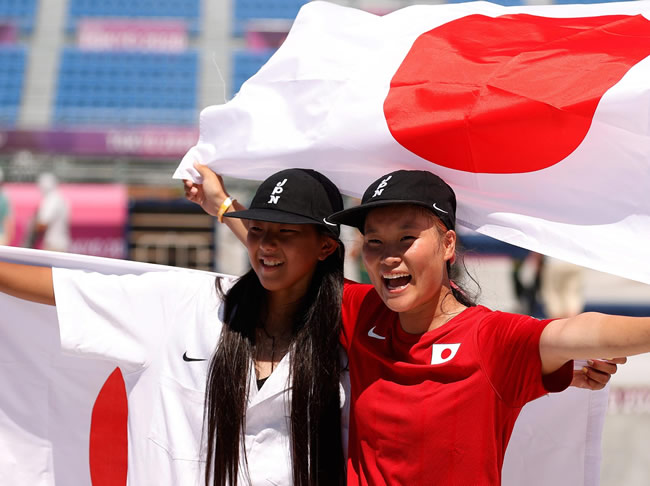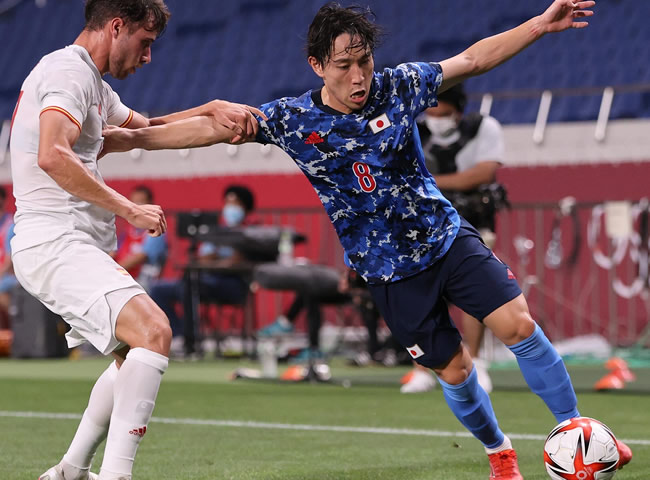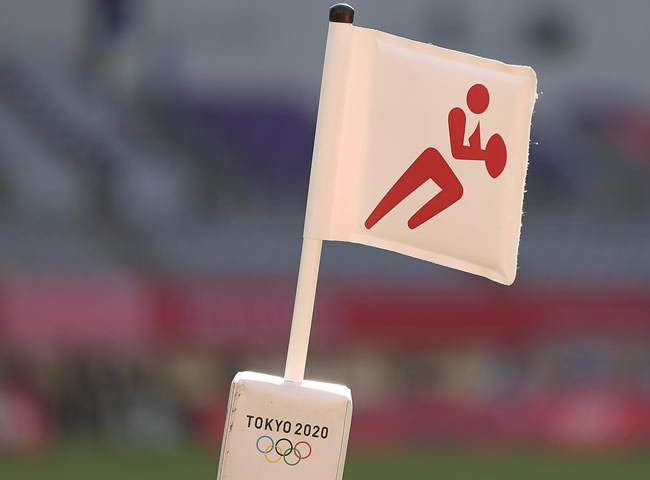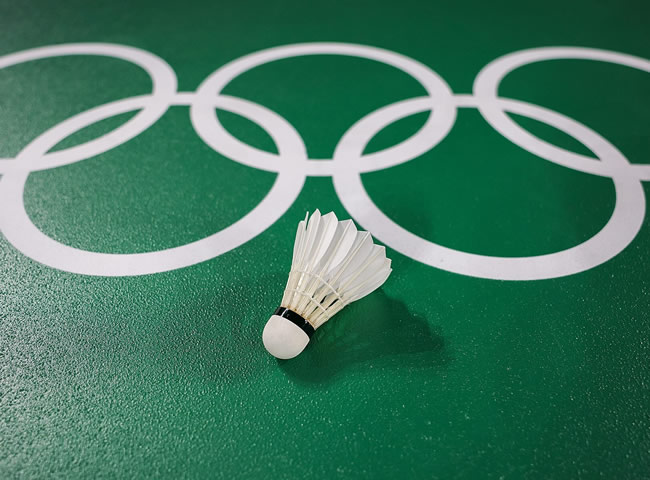« Chandigarh University Outdoes its Earlier Record in Campus Placements; Registers 7412 offers by 757 Multinationals for the 2021 Batch. | Main | Tokyo 2020 Olympics: Life at the Olympic Village & Medal Table »
August 9, 2021
Tokyo 2020 set to match Japan’s first home games in driving sports participation




Photos: Tokyo 2020 set to match Japan’s first home games in driving sports participation. Images provided by & Copyright © IOC 2021.
Tokyo, August 08, 2021 — The Olympic Games Tokyo 1964 sparked a nationwide sporting boom, creating clubs for children and inspiring all generations to get active. Now hopes are high for Tokyo 2020 to leave a similar legacy.
In recent years, football has become a national obsession in Japan, but the country’s love affair with the sport started on October 14, 1964.
Japan had entered a team for the football competition at the Olympic Games Tokyo 1964. However, expectations were minimal, especially after being drawn in a group with footballing stars Italy and Argentina.
To the delight of the local fans, however, the home team twice came from behind to defeat the Argentinians 3-2. And it qualified for the quarter-finals.
The South Americans were stunned - “No one can explain it,” wrote Argentinian newspaper ClarÃn the following day - and Japanese football never looked back. The next year the Japanese Soccer League was formed.
Hopes are high that Tokyo 2020 can leave a similar legacy, helping kickstart a rise to global prominence in sports in which Japanese athletes have not always excelled.
In 2019, Japan’s run to the Rugby World Cup quarter-finals thrilled the nation, and the captain is hoping the Olympic Games rugby sevens competition can continue to fuel the growth of the sport at home. “I think the Japanese public will get behind the sevens,” he said in a recent interview with World Rugby. “It is quite easy to follow, it is fast, there are big players, small players, a real mix. For Asia, it is a good starting place to get people into rugby.”
Since 2016, Japan has cultivated one of the world’s most exemplary organizational structures for talent development in elite sports, creating two world-class training and research environments: the Ajinomoto National Training Centre and the Japan Institute of Sports Sciences.
Leading coaches worldwide spend time with Japanese high-performance athletes at these facilities, while local universities provide them with nutritional guidance, training physiology, and sports psychology.
In addition, the Japanese Corporate Sports System, which encourages companies to employ high-performance athletes, has provided many competitors with the financial support and conditions to keep training. The Tokyo Metropolitan Government has also played its role in discovering and nurturing junior athletes locally, providing 1,034 athletes across the 31 Olympic sports with financial support for training and competition to further their progress.
Not surprisingly, Japan has performed increasingly well in several new disciplines in recent years, particularly badminton and sailing. In addition, Japanese athletes performed exceptionally well in skateboarding and surfing, and they played strongly in karate and climbing.
The sporting legacy of Tokyo 2020 is unlikely to be confined to the elite arena, however. Tokyo 1964 provided a successful foundation to promote the recreational sport. Preparations for the Games led to the creation of the Japan Junior Sports Clubs Association (JJSA), which continues to provide opportunities for children all over the country. According to statistics in 2018, the JJSA comprised some 31,000 clubs, with 650,000 children participating.
Several initiatives are underway for sport to benefit from Tokyo 2020 similarly, injecting enthusiasm for recreational sport across all age groups to encourage healthy lifestyles. For example, before the COVID-19 pandemic hit, opening hours had been expanded at various amenities and parks, while public schools opened public facilities to citizens outside class times. In addition, the government awards companies that promote sport and instigate best practices with official certification. At the same time, the Tokyo Metropolitan Government has created a website enabling them to hire trained instructors for different sports.
The government hopes to involve 70 percent of the city’s adults (18 and above) to practice sport at least once a week. The latest figures show they are well on track to achieve this. In 2020, some 60.4 percent of adults in Tokyo were engaging in sporting activity, compared to 53.9 percent in 2012.
Sport has long been a focus for Japanese politicians due to its health and fitness benefits for the population. Ahead of Tokyo 1964, a national curriculum for physical education was implemented in schools, focusing on fitness-oriented activities and lifelong sporting participation in the ensuing decades.
More than half a century later, Japan still holds the many legacies of Tokyo 1964. Despite taking place in an unprecedented context of a pandemic, Tokyo 2020 aims to make a similar impact on the lives of the Japanese public.
Source: International Olympic Committee
|GlobalGiants.Com|







Edited & Posted by the Editor | 1:01 AM | Link to this Post







